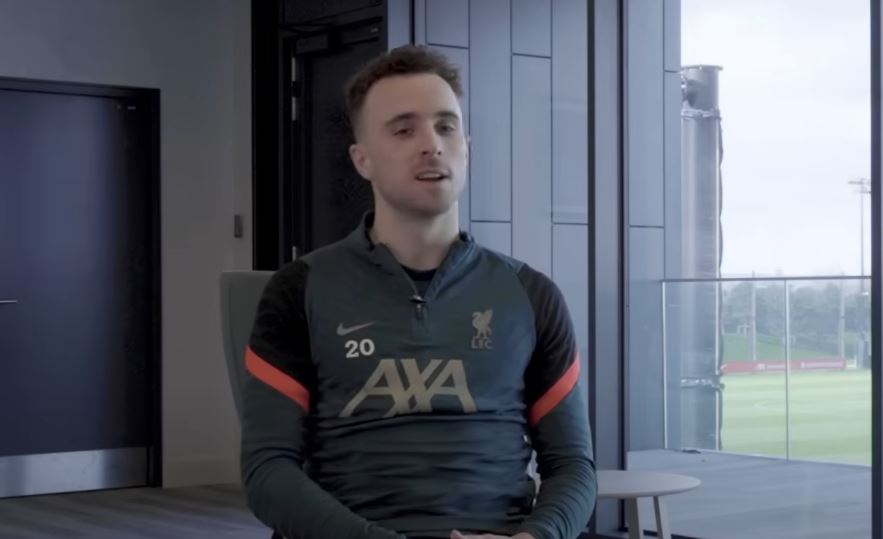
By the end of his sadly brief but illustrious career, Diogo Jota’s pay had subtly changed to reflect his increasing influence both on and off the field. Even though he made a respectable £140,000 a week in 2025, his earnings never quite matched the glamorous incomes of international superstars like Mohamed Salah or Cristiano Ronaldo. But in more recent times, it was precisely this harmony—between greatness and modesty—that made his legacy so captivating.
Due to his steady work and tactical flexibility, Jota’s yearly compensation increased from £1.8 million in 2018 to £7.28 million by 2025. This dramatic ascent, which was accomplished without any high-profile controversies or contract disputes, was a powerful example of how talent and integrity can still lead to success. His ability to play as a winger, a striker, or even a false nine made him extremely valuable to several managers, each of whom used his skill set in a very different way.
Diogo Jota – Personal, Career, and Salary Details
| Full Name | Diogo José Teixeira da Silva |
|---|---|
| Date of Birth | December 4, 1996 |
| Date of Death | July 3, 2025 |
| Nationality | Portuguese |
| Last Club | Liverpool F.C. |
| Playing Position | Forward / Winger |
| Weekly Salary (2025) | £140,000 |
| Annual Salary (2025) | £7,280,000 |
| Total Career Earnings | Approx. $53.7 million |
| Net Worth | Estimated £42.2 million |
| Contract Expiry | June 30, 2026 |
From a wider angle, Jota’s pay increase is consistent with a more general trend in the Premier League. Players who provide tactical adaptability and consistently produce results are getting more and more recognition. Jota’s strong link-up play, high pressing, and sharp finishing made him the ideal candidate to fit the new trend of clubs moving away from one-dimensional forwards. This change was reflected in his pay, which was extremely efficient but not extravagant.
Jota left behind a particularly noteworthy financial legacy. His career earnings totaled over $53 million, according to data from Capology and Spotrac, making him one of the more financially secure players of his generation. However, Liverpool’s publicly acknowledged decision to continue paying his family the remaining balance of his contract was what elevated his pay above a mere figure. That sum, approximately £41 million, will be fully reimbursed. This act, which is far more extensive than any contractual duty, establishes a humane standard in contemporary football finance.
Both club leadership groups and fan communities have expressed their admiration for this decision. Liverpool established themselves as more than just a company by pledging to support his wife and kids after his death. Their humane actions were especially helpful for the sport’s frequently criticized corporate image. In response, it has been reported that teams like Manchester City and Bayern Munich are examining internal clauses, possibly starting a larger trend toward posthumous salary guarantees.
Jota’s income increased over the years, not because he sought out lucrative leagues or endorsement deals, but rather because he stayed grounded and focused. Notably, in order to minimize distractions, he spent his early years living in club dormitories. He made investments in developing his game intelligence and learning languages, which significantly increased his value to teams like Wolves and Liverpool. These deliberate choices demonstrated a greater awareness of long-term benefit over short-term style.
Jota’s pay started to look like a small deal, especially in his final two seasons when he filled in for Salah. He scored important goals, such as a crucial derby goal against Everton and a thrilling late winner against Tottenham, which helped Liverpool win the 2024–25 Premier League. His last year served as evidence of his steady presence and quiet leadership. The £140,000 weekly price tag turned out to be a very effective return on investment for Liverpool.
In contrast to the extravagant contracts of top European clubs, Jota’s numbers appear surprisingly reasonable. Regularly, players who lack his loyalty and have half his work ethic make more money. His case study is especially instructive for younger players entering negotiations because of this contrast. Jota created a career where profits flowed naturally from performance by remaining dependable and focused on the team, which is still uncommon and admirable.
He performed well in both domestic and international games, played in a variety of formations, and adjusted to three different managers. Jota’s contributions were consistent and varied, ranging from taking penalties in FA Cup finals to scoring in Champions League matches. According to this perspective, his earnings were signs of trust rather than merely rewards.
